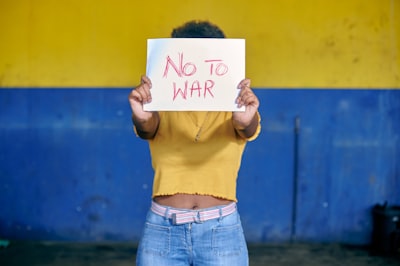Summary:
A coalition of Israeli legal and gender experts, under the banner of the Dinah Project, has released a report alleging that Hamas systematically employed sexual violence as part of a broader genocidal strategy during the October 7, 2023 attack on Israel. The report is based on a synthesis of survivor accounts, testimonies from former hostages, witness statements, and first responder observations. The claims include attempted rape, forced nudity, sexual assaults, and other forms of sexual violence, many reportedly committed during the Nova music festival assault and in captivity. The report also presents a new legal framework for prosecuting sexual violence in conflict, even when direct links between individual perpetrators and specific crimes can't be established. Hamas has denied these charges. Meanwhile, a UN mission and the International Criminal Court prosecutor have both found credible grounds that such crimes occurred as part of the wider assault.
Analysis:
The Dinah Project’s report is a harrowing contribution to the already complex and emotionally charged discourse surrounding the events of October 7 and the ongoing Israeli-Palestinian conflict. By framing sexual violence as not only present but systematic and strategic—alleging genocidal intent—it calls attention to the most egregious uses of gender-based violence in times of war. The report’s meticulous effort to propose a legal pathway addresses a practical challenge: such crimes, often committed in chaos, can be impossible to attribute to individual perpetrators—especially when so many victims cannot testify, either due to trauma or murder.
However, it is worthwhile to note the potential for bias and the difficulty of evidence-gathering in the context of war, where information is often weaponized, and accessing primary sources is dangerous. The authors appear to be transparent about their method—categorizing evidence by proximity and value—but the highly politicized climate necessitates rigorous scrutiny and independent verification. Furthermore, reports and investigations from international bodies like the UN and ICC, which share the conclusion that sexual violence did occur, bolster the Dinah Project's credibility, yet they too are sometimes criticized for their perceived partiality or limitations.
From a political and social perspective, the deployment of sexual violence as a weapon is not unprecedented. History is tragically replete with such examples—Bosnia, Rwanda, the Yazidis by ISIS—often with the same goals of terror, humiliation, and the destruction of social fabric. The implications for accountability and justice are profound. If the international community accepts the framework presented by the Dinah Project, it could set new standards for how such atrocities are prosecuted globally and may influence policy, humanitarian response, and norms around wartime conduct.
Discussion:
This report matters greatly—both for what it claims and for the process of reckoning with atrocity in an age of omnipresent media, deeply entrenched narratives, and enduring conflict. The use of sexual violence as a conscious tactic demands international outrage not only because of the suffering of victims, but because it strikes at the core of societal resilience and morality. Yet, real justice often eludes the survivors, as legal cases get mired in geopolitics and evidentiary burdens.
There is an urgent need for debate on how societies, legal systems, and international institutions respond when atrocities are alleged amidst ongoing violence—especially when accountability mechanisms lag well behind the cycles of trauma. How can justice frameworks be both rigorous and compassionate, neither erasing suffering through bureaucratic ambiguity nor weaponizing allegations for political aims?
While the context is Israeli-Palestinian, the lessons and warnings resonate far wider. This is a clarion call for strengthening investigative standards, supporting survivors, and insisting that sexual violence is recognized—and prosecuted—as a crime against humanity, not as a regrettable byproduct of conflict. At the same time, scrutiny and fair process must remain hallmarks of any justice effort.
Ultimately, the Dinah Project's report is a stark reminder that no matter where violence erupts, sexual violence must neither be normalized nor ignored. Whether viewed as a specific indictment or as a template for global change, its claims will reverberate in law, diplomacy, and the hearts of those who demand a reckoning with wartime atrocity.

Comments
No comments yet. Be the first to comment!